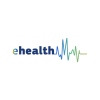The HealthNet Economic Interest Group (GIE, in French) was established in 2005 with the aim of enabling the exchange and the secured sharing of health data. The establishment of the eHealth Agency has thus been built on the extension of the GIE's role to new remits and the adoption of a new governance model.
The new governance model of HealthNet GIE, now renamed as 'eHealth GIE - National agency for shared information in the field of health' (in short, 'eHealth Agency') involves in the statutory and decisional bodies of the Agency the main actors of the health sectors and patient representatives, namely:
- Association of physicians and dental physicians (AMMD, in French)
- 'Patiente Vertriedung' Association, the single association for the defence of patient rights
- National Health Fund (Caisse nationale de santé - CNS, in French)
- Common social security centre (CCSS, in French)
- Confederation of assistance and healthcare providers (COPAS, in French);
- Coordination of Luxembourg's hospitals (Entente des hôpitaux luxembourgeois - EHL, in French)
- Luxembourg federation of medical analysis laboratories (FLLAM, in French)
- Ministry of Health
- Ministry of Social Security
- Association of Pharmacies of Luxembourg (Syndicat des pharmaciens luxembourgeois, in French)
The President of the Agency's management committee is Mr Paul Schimt, the head of CNS.
The Act of 12 December 2010 providing for the reform of the healthcare system foresees the creation of the 'National agency for shared information in the field of health'. The future remits of the eHealth Agency include:
- the establishment, at national level, of an eHealth platform and of its added value services, e.g. the patient's shared healthcare records folder (dossiers de soins partagé - DSP, in French), as well as the computerisation of other information flows (prescriptions, reports, referral letters, etc);
- the administrative and technical management of the platform and its services;
- defining interoperability and security frameworks for information systems in order to ensure the transmission of data between the various information systems of the healthcare sector;
- the establishment in the years to come of a 'Master Plan', a sort of common roadmap of strategic projects in the field of health that takes into account the country's health policy priorities as well as the needs of both healthcare staff and patients.
The Government of Luxembourg has put in place a National eHealth Programme in the framework of which a set of initial steps were taken with the sector's actors. In particular, the theme of health information systems' interoperability as a means to facilitate both the sharing and exchange of health data, has been widely explored. The first business services, e.g. exchange and national-level sharing of laboratory tests and X-ray results, have also been outlined.
From this preparatory work, a need arose for an IT platform enabling the exchange and sharing of health data. The aforementioned Act of 12 December 2010 also foresees the creation of a patient's shared healthcare records folder (dossiers de soins partagé - DSP, in French). The DSP is an electronic folder for sharing the patient's data which will be accessible to those professionals in charge of the patient, provided the latter will have granted prior authorisation to do so. Patients will also be able to access their records and place personal comments in a dedicated space.
The DSP will thus gather the patient's healthcare information originating from various sources, such as: primary care physicians, general practitioners, specialists, hospitals, analysis laboratories, etc. It will comprise information that contribute, directly or indirectly, to optimising treatment and care coordination. Only data identified as relevant and useful for sharing between professionals will be featured in the DSP.
The DSP will make it possible to access very quickly such information on the previous state of health of a patient, and thus contribute to the better coordination and safety of healthcare.
Further information:

